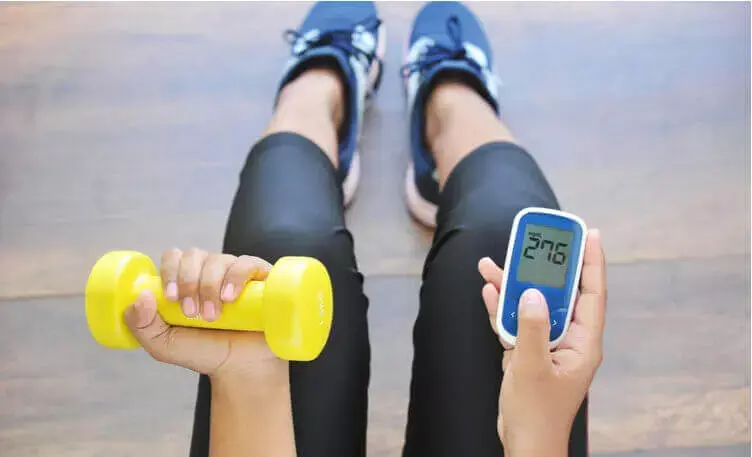- Home
- Medical news & Guidelines
- Anesthesiology
- Cardiology and CTVS
- Critical Care
- Dentistry
- Dermatology
- Diabetes and Endocrinology
- ENT
- Gastroenterology
- Medicine
- Nephrology
- Neurology
- Obstretics-Gynaecology
- Oncology
- Ophthalmology
- Orthopaedics
- Pediatrics-Neonatology
- Psychiatry
- Pulmonology
- Radiology
- Surgery
- Urology
- Laboratory Medicine
- Diet
- Nursing
- Paramedical
- Physiotherapy
- Health news
- Fact Check
- Bone Health Fact Check
- Brain Health Fact Check
- Cancer Related Fact Check
- Child Care Fact Check
- Dental and oral health fact check
- Diabetes and metabolic health fact check
- Diet and Nutrition Fact Check
- Eye and ENT Care Fact Check
- Fitness fact check
- Gut health fact check
- Heart health fact check
- Kidney health fact check
- Medical education fact check
- Men's health fact check
- Respiratory fact check
- Skin and hair care fact check
- Vaccine and Immunization fact check
- Women's health fact check
- AYUSH
- State News
- Andaman and Nicobar Islands
- Andhra Pradesh
- Arunachal Pradesh
- Assam
- Bihar
- Chandigarh
- Chattisgarh
- Dadra and Nagar Haveli
- Daman and Diu
- Delhi
- Goa
- Gujarat
- Haryana
- Himachal Pradesh
- Jammu & Kashmir
- Jharkhand
- Karnataka
- Kerala
- Ladakh
- Lakshadweep
- Madhya Pradesh
- Maharashtra
- Manipur
- Meghalaya
- Mizoram
- Nagaland
- Odisha
- Puducherry
- Punjab
- Rajasthan
- Sikkim
- Tamil Nadu
- Telangana
- Tripura
- Uttar Pradesh
- Uttrakhand
- West Bengal
- Medical Education
- Industry
Acute hyperglycemia does not impair exercise performance in type 1 diabetes: Study

Acute hyperglycemia does not impair overall exercise performance in individuals with type 1 diabetes, suggests a study published in the Diabetologia.
In individuals with type 1 diabetes, chronic hyperglycemia impairs aerobic fitness. However, the effect of acute marked hyperglycemia on aerobic fitness is unclear, and the impact of insulin level has not been examined.
A study was conducted by a group of researchers from Australia to explore whether acute hyperglycemia with higher or low insulin levels affect V˙O2peak and other exercise performance indicators in individuals with type 1 diabetes.
In this study, the researchers selected type 1 diabetic patients within the age group of 14–30-year-old.
All the participants exercised in a clinical laboratory under three clamp (constant insulin, variable glucose infusion) conditions on separate days:
· Euglycaemia (5 mmol/l) with 20 mu [m2 BSA]−1 min−1 insulin (where BSA is body surface area) (Eu20)
· Hyperglycaemia (17 mmol/l) with 20 mu [m2 BSA]−1 min−1 insulin (Hyper20)
· Hyperglycaemia (17 mmol/l) with 5 mu [m2 BSA]−1 min−1 insulin (Hyper5).
The results of the study were as follows:
- In total 12 recreationally active individuals with type 1 diabetes were analyzed.
- Compared with Eu20, V˙O2peak was lower in Hyper20, but Hyper5 was not different.
- Compared with Eu20, sprint cycling peak power was not different in Hyper20 but was higher in Hyper5.
- Hyper20 reaction times were not different but Hyper5 reaction times were slower than Eu20.
- No differences between Eu20 and either the hyperglycaemic condition were observed for the other testing measures.
Acute hyperglycemia had an insulin-dependent effect on sprint cycling absolute power output and reaction time but with differing directionality (positive for sprint cycling and negative for reaction time) and no effect on the other indicators of exercise, performance examined. Thus, the researchers concluded that acute hyperglycemia is not consistently adverse and does not affect total exercise performance to an extent clinically relevant for recreationally active individuals with type 1 diabetes.
Reference:
Acute hyperglycemia does not have a consistent adverse effect on exercise performance in recreationally active young people with type 1 diabetes: a randomized crossover in-clinic study by Rothacker K et. al published in the Diabetologia.
https://doi.org/10.1007/s00125-021-05465-9
Dr. Shravani Dali has completed her BDS from Pravara institute of medical sciences, loni. Following which she extensively worked in the healthcare sector for 2+ years. She has been actively involved in writing blogs in field of health and wellness. Currently she is pursuing her Masters of public health-health administration from Tata institute of social sciences. She can be contacted at editorial@medicaldialogues.in.
Dr Kamal Kant Kohli-MBBS, DTCD- a chest specialist with more than 30 years of practice and a flair for writing clinical articles, Dr Kamal Kant Kohli joined Medical Dialogues as a Chief Editor of Medical News. Besides writing articles, as an editor, he proofreads and verifies all the medical content published on Medical Dialogues including those coming from journals, studies,medical conferences,guidelines etc. Email: drkohli@medicaldialogues.in. Contact no. 011-43720751


